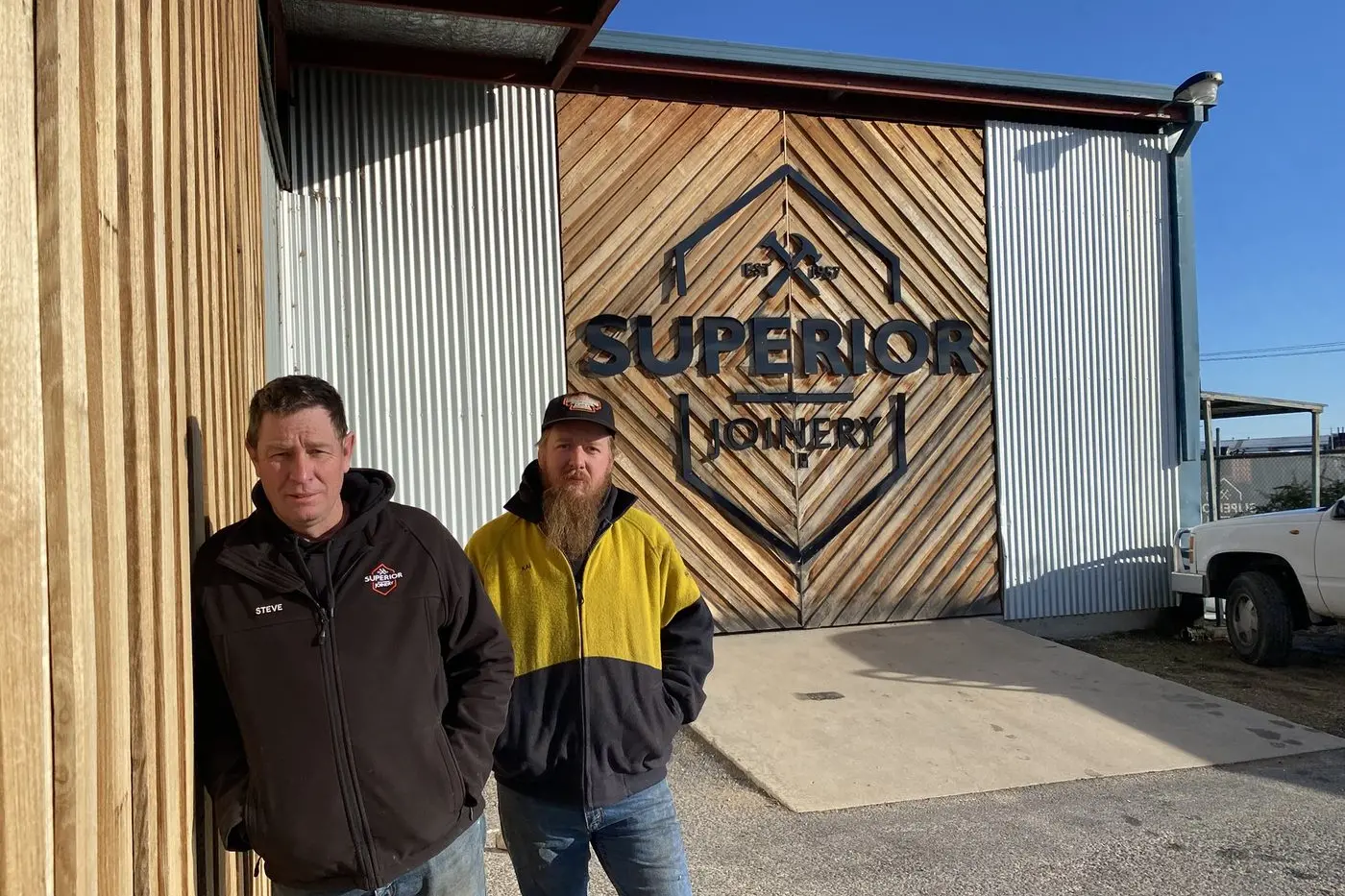PHOTO
Local business, Superior Joinery, is closing its doors after 68 years of servicing the community.
Since 1957, Superior Joinery has been handcrafting timber windows and doors using traditional mortise and tenon joints, from complex architectural designs to simple renovations.
Partners Steven LePoidevin and Kai Duursma who both completed their apprenticeships at the business before buying the business in 2016 are "devastated" to say goodbye.
Kai said there were a number of factors which contributed to the tough decision including severe timber shortages due to native logging restrictions, impacting both supply and quality, profit losses from fixed-price contracts signed before significant cost increases during and after COVID-19, and reduced demand due to the high cost of building and living.
"It's reached the point where the business model is no longer viable in the current market," he said.
"It has been a culmination of many factors that have led us to this place, and it's been an incredibly tough decision to make."
The business, employing 10 people including Steven and Kai's spouses, will close its doors for the final time at the beginning of August.
Steven, who has worked at the business for 22 years, said this will have an immeasurable impact on their employees, families, and the wider community.
"We are a family business, Kai and I along with our wives Gemma and Natalie are devastated to be closing," he said.
"There are countless locals who have completed their apprenticeships here, the impact on the community goes wider than those who currently work at Superior Joinery," he said.
"We've put our blood, sweat and tears into this business and it's been a massive part of our lives."
Superior Joinery will host a farewell celebration for all current and past employees on Friday, 1 August from 3pm.
Everyone is welcome to come along, catch up, and reflect on its history.
This comes after native timber harvesting in state forests officially ended in Victoria on January 1, 2024, affecting a number of business and communities across the state.
Housing Industry Association chief executive of industry and policy, Simon Croft, said small businesses across the country are feeling the significant burden of increasing regulation, which is hampering their ability to run and operating a business.
"New and constantly changing rules across sustainability and environmental reporting, timber logging rules and bans, increasing WHS and NCC requirements and business compliance requirements mean that businesses are spending more time navigating these regulations than time on site running and operating the business itself," he said.
"HIA continues to advocate to state and federal governments on the need for a reset and rethink on how these types of rules are being imposed onto small businesses.
"Governments additionally need to be looking at how they support these businesses to grow and thrive as opposed to having them continuing to look over the shoulder at more red and green tape on business."





